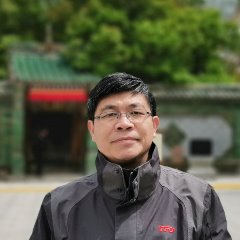Prof. Li's major research interest is marine microbial symbionts in sponges and corals. The marine biosphere is well-endowed with symbioses. As one of the oldest multicellular animals, i.e. more than 600 million years old, marine sponges (phylum Porifera) probably represent one of the most complex symbioses on the earth. Corals (more than 500 million years old) also harbor abundant and diverse microbial symbionts. Marine microbial symbionts are suggested to play an important role in the host's chemical defense, nutrients and energy transfer as well as the marine C/N/P cycle, and are important resources for marine natural products and functional genes. The present research includes:
1. Marine natural products and enzymes from marine microbial symbionts, biosynthesis and fermentation.
2. Symbiotic microbiome: community structure and functions of marine microbial symbionts in sponge holobiont/coral holobiont, interaction between the host and its microbial symbionts.
3. Response and adaption of sponge holobiont and coral holobiont to environment and climate changes.




